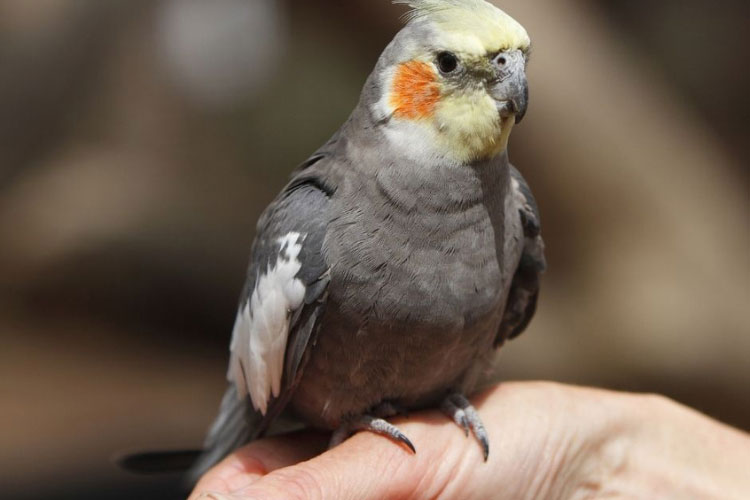Cockatiels are a type of parrot, and they’re quite adorable to have as a pet. However, with birds, it’s very important to make sure their temperature is normal, and that they aren’t too cold or too hot.
So what about cockatiel cold feet? They are mostly cold for short periods after being bathed, in a cold room, or due to improper nutrition. It usually isn’t an issue, but if the feet are always cold, it can be a health hazard, and you should get a vet immediately.
There’s more to it, though, and it isn’t always a health hazard. So today, we’ll cover all about cockatiels and why they might have cold feet, how to fix them, how to diagnose them, and more. Without further ado, let’s get straight into it.
Why Your Cockatiel Might Have Cold Feet
Cockatiels can have cold feet for a lot of reasons, so a list of all the common reasons it can happen —
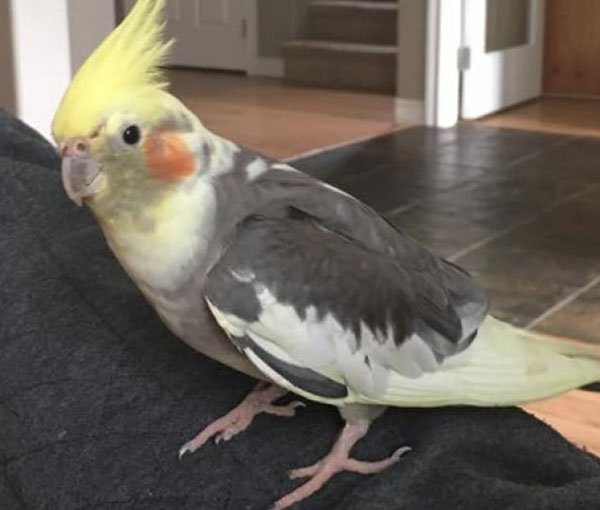
Cold room temperature
Like humans, cockatiels can have cold feet simply because they’re too cold indoors. The feeling of cold feet is just as irritating to cockatiels as it is to humans.
Generally, they can keep themselves much hotter due to their feathers. However, the feathers can only help to keep their body cold, and their feet aren’t covered with the feathers. On the other hand, cold feet like this are quite common and normally, not an issue unless it happens all the time, and it’s shivering.
Right after bathing
If your cockatiel just finished bathing, the overall temperature of its body can be low and some of the feathers might stay cold for a long time. This can cause cold feet, too.
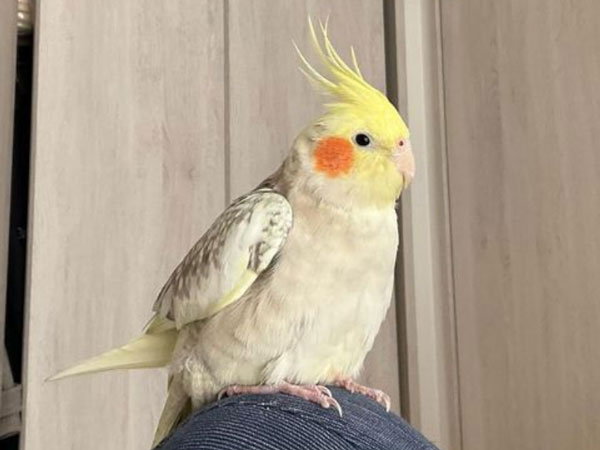
Although they can dry the feathers after a while, their feet can still remain cold. In that case, they usually tuck their legs into their feathers if their feet are cold. If they don’t do this and they’re too cold, it can be an illness.
Deteriorated food or improper nutrition
When your cockatiel isn’t getting proper nutrition, or the food is deteriorated or spoiled, it can get many illnesses, and the heart rate can drop. When the heart rate drops, their entire body can get cold, especially their feet, as that area has no feathers.
This is a major health hazard, and if you see that your cockatiel’s feet are cold after they ate a meal, you should immediately take them to a vet.
Stress
If your cockatiel is very stressed for a long time, its body can get colder. This can occur due to many reasons, such as bright light, loud noises, children moving their cages too much, or more. It’s also common when your cockatiel is first introduced to your house and its surroundings.
Illness
Finally, if your cockatiel has any illness, it may cause it to have cold feet. These can include —
- Cardiovascular disorders
- Avian flu
- Psittacosis
- Parasitic infection
- Issues with circulation
For more information about illnesses with cockatiels, you can check out this article by Dr Cockatiel.
What You Should Do When Your Cockatiel Has Cold Feet
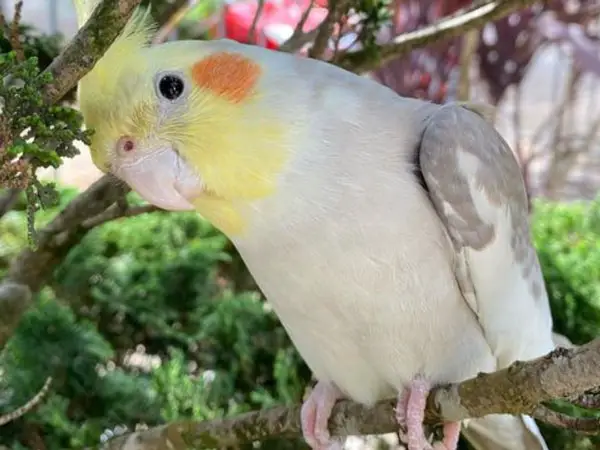
If your cockatiel has cold feet, you should do these things —
Cover the cage
At night, it is usually very cold. So you should try to cover your cockatiel’s cage at night with a wool blanket or a piece of cloth made of thick cotton.
There’s more to it though, and covering it incorrectly or at the wrong time can get your cockatiel stressed. You can check this article to learn more about covering the cage properly.
Use heat lamps
If your cockatiel is constantly cold, you should use a heat lamp in its cage. This can increase the temperature of the surroundings, making them feel much more comfortable and keeping them healthy.
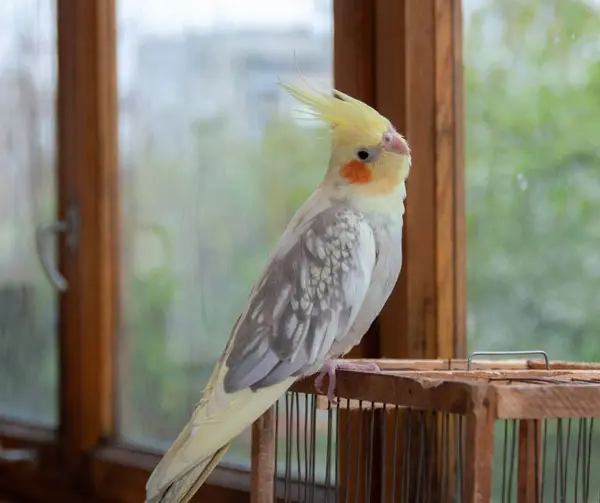
Don’t keep the cage near windows
Windows have a lot of cold breezes, so it can make the feet of your cockatiel cold. So you should generally keep the cage of your cockatiel away from any windows. Moreover, try keeping it at a place where the temperature is constant, so they can get used to it easily.
Cover it with a blanket
If your cockatiel is constantly shivering, you should cover it with a cloth made of cotton or wool. You should also feed it nutritious food and take it to a vet if necessary.
Use thermal perches
Most cockatiels have metal cages, which can get cold over time. So if they’re constantly holding the metal perch or standing on it with their feet, they can get cold.
To counter this, you can use thermal perches instead as they can absorb the heat and keep your cockatiel comfortable. This isn’t a necessity, but it reduces many risks for your cockatiel and makes it more comfortable.
How Can I Tell If My Cockatiel Is Too Cold?
You can tell if your cockatiel is too cold, whether it’s in their feet or their entire body, if they do these —
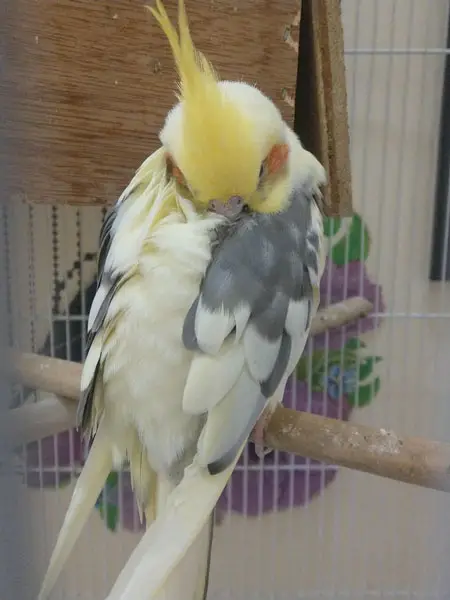
Shivering
If your cockatiel is often shivering, it might be too cold. Sometimes they can shiver non-stop. This indicates an illness, and you should immediately seek help from a vet.
Puffed up feathers
Cockatiels usually puff up their feathers so that they can trap heat inside them to keep themselves warm enough.
Tucking the beak against their back
If your cockatiel is tucking its beak against its back. Most of the time it does it to keep itself warm to shelter its head from the cold.
It’s a similar way to how humans wear a scarf or mask to cover their face from the cold, cockatiels just do it with their backs.
Only using one leg
Cockatiels can use only one leg to stand up as exercise or for fun, but they might also do it so their leg can warm up. Thus, they might switch up the legs after a while to warm both legs up.
What Are Signs That My Cockatiel Has Issues With Their Feet?
When your cockatiel has cold feet, you should generally look for illness symptoms. Among them, the most common symptoms are listed below —
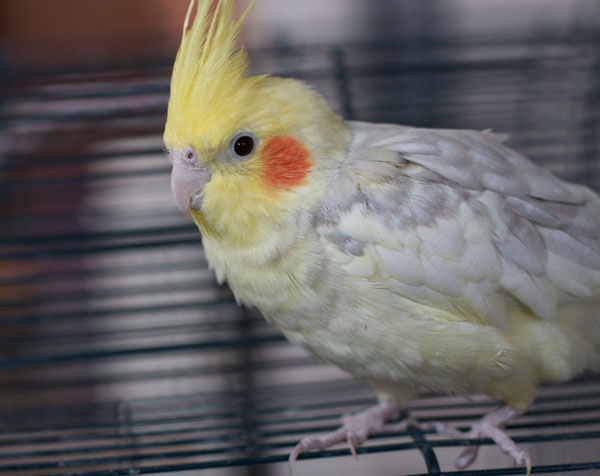
- Swollen feet
- Sprayed legs
- Weakness
- Stomping
- Curled up toes
- Visible pain or discomfort
- Shifting the primary leg to use
- Paralysis in worst-case scenarios
- Gout
FAQs
Cockatiels can get cold quite easily, especially during the winter. So cold feet are quite common, and they’re usually nothing serious. But if you have more questions related to cockatiels, you can check out our most frequently asked questions —
Cockatiels generally have warm feet, and it’s completely normal. But if you see that their feet are warm for a long time or they’re too warm, it might be an illness. So you should look into it and take them to a vet.
Even if it’s cold during the winter, you should still bathe your cockatiels frequently. If the water is too cold, you could consider using room temperature or slightly lukewarm water instead. Bathe them at least thrice a week to keep them healthy.
The best way to warm up a cockatiel is simply through exercise. Give them a lot of toys they can play with, and their body can cool down after a while. This is especially helpful in winter, when the temperature is constantly low.
Key Takeaways
Cockatiels generally have warm feet, but it’s also quite common for them to have cold feet for a while due to various reasons, such as the temperature indoors or if they just finished bathing. It’s nothing to worry about if their feet are only cold for a bit as that happens with most birds and humans.
Nevertheless, if their feet are cold for too long, it might be an illness and you should get help from a vet. Afterwards, cover the cage with a cloth at night and have a heat lamp beside the cage, so your cockatiel doesn’t get too cold in the future.
With that, all said, good luck keeping them warm, and cheers!
